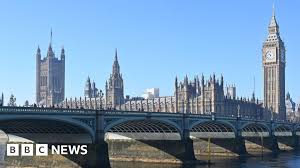Interest rates: Bank of England cuts interest rates to 4.75%, in ...

Is a cut good news or bad news? It depends who you arepublished at 14:20 Greenwich Mean Time 7 November14:20 GMT 7 November
Michael RaceBusiness reporter
Interest rates can impact people in different ways - and it all depends on your circumstances.
Mortgage holders with variable or tracker mortgages, or who are looking to secure new fixed-rate deals, will face either higher or lower monthly repayments, depending on whether the UK’s main interest rate is raised or cut.
If rates are higher, it becomes harder generally for first-time buyers, as it becomes more expensive to borrow and they may find themselves priced out of the market.
Higher rates tend to mean increased charges for unsecured loans and credit cards, but people with savings should benefit from higher interest rates and get better returns on their money. Lower rates, while making it cheaper to borrow, mean banks tend to offer lower returns on savings.
Higher rates could also be good news for those on the cusp of retirement, who might get a better annuity rate. This determines how much guaranteed income you get, when you swap some or all of your pension pot for a secure income. That's because providers typically buy government bonds, which will rise in line with higher interest rates.
For the government though, higher interest rates in recent times has meant it has had to pay more interest on the country's debt. This has been in the spotlight following reaction on financial markets to Rachel Reeves’ Budget, which saw the amount the government has to pay lenders rise.
You can read more on how rates can affect you and your money here.


 United Kingdom
United Kingdom Argentina
Argentina  Australia
Australia  Austria
Austria  Brazil
Brazil  Canada
Canada  Germany
Germany  Ireland
Ireland  Italy
Italy  Malaysia
Malaysia  Mexico
Mexico  New Zealand
New Zealand  Poland
Poland  South Africa
South Africa  United States
United States 























